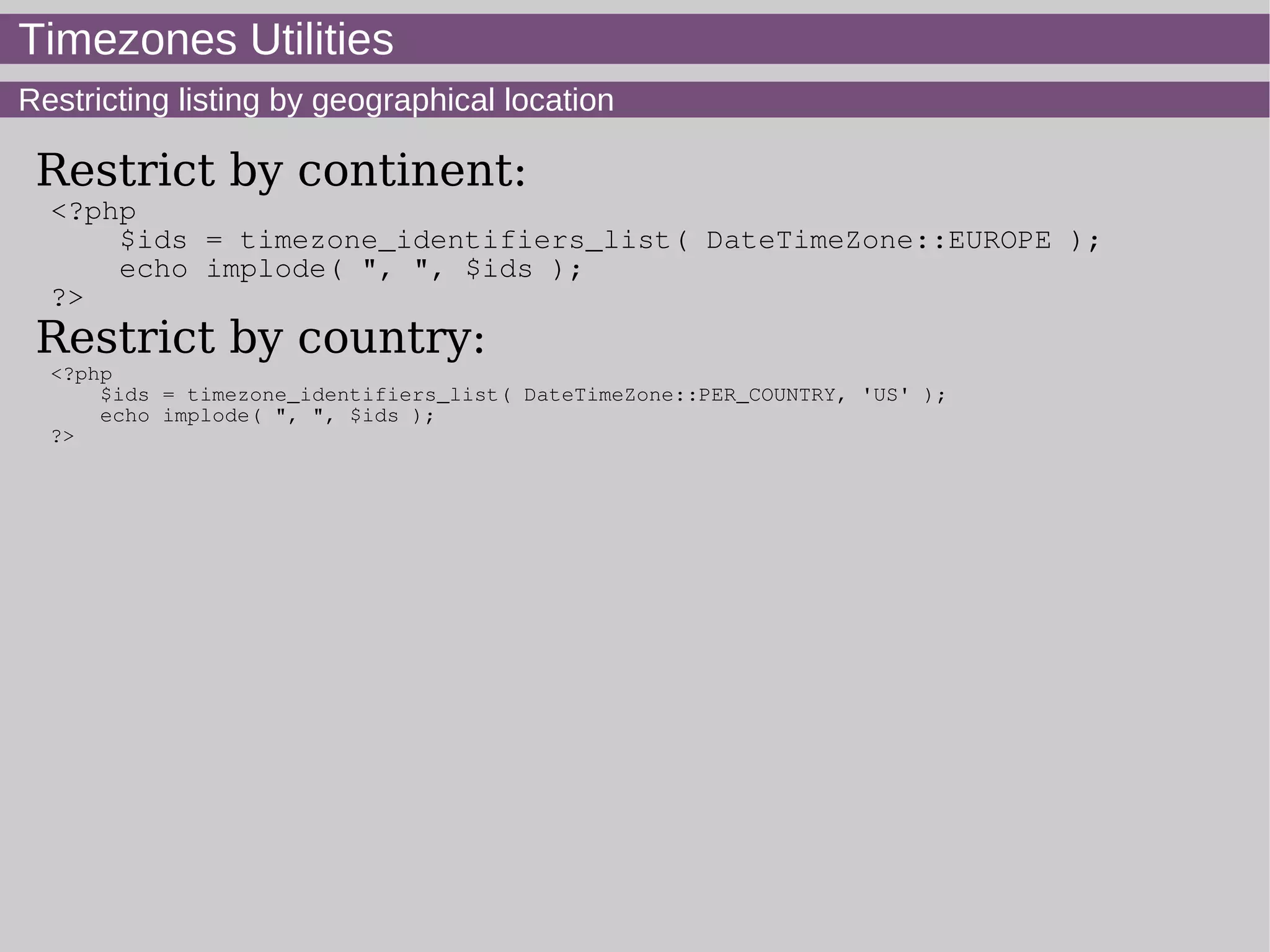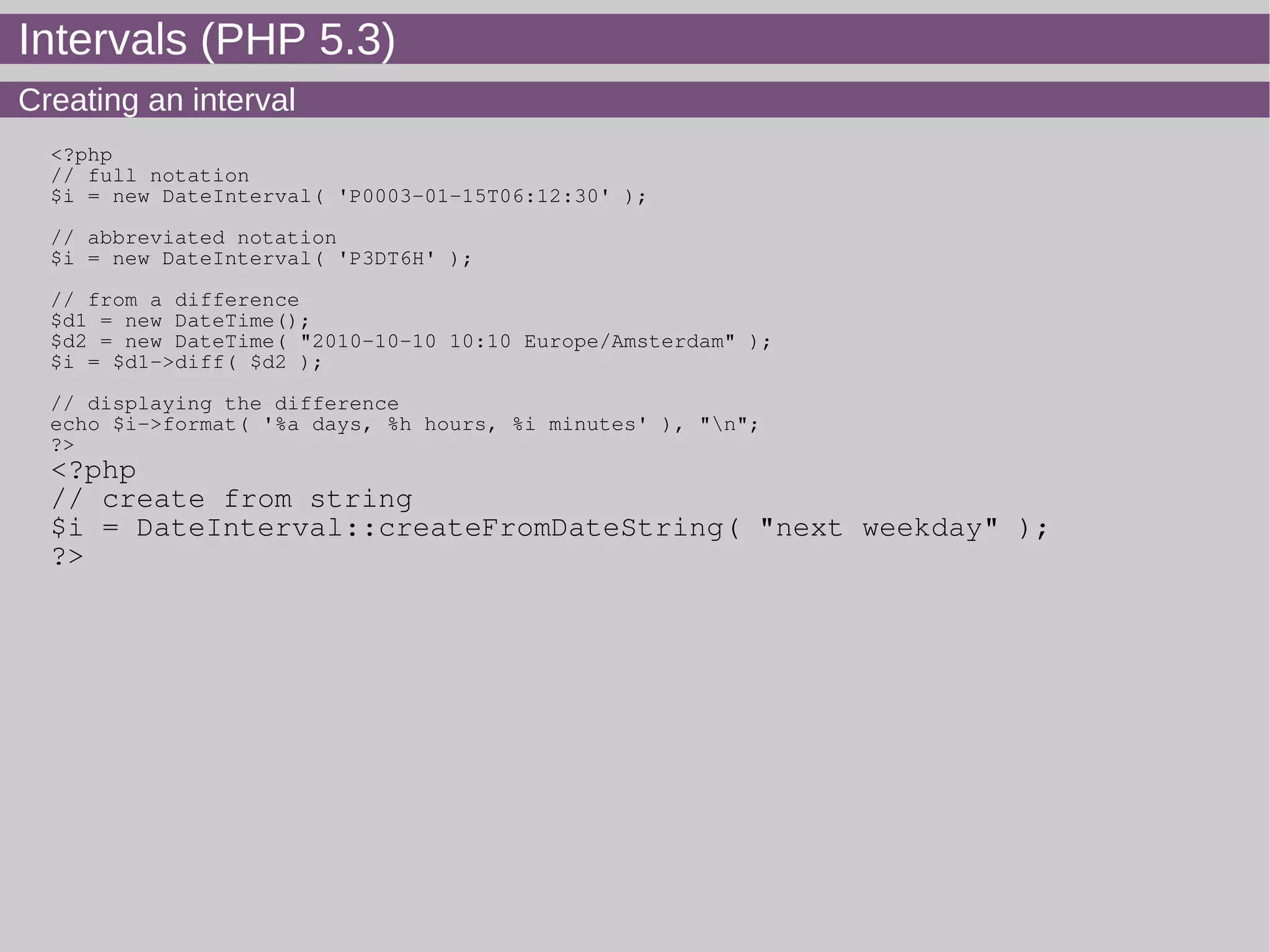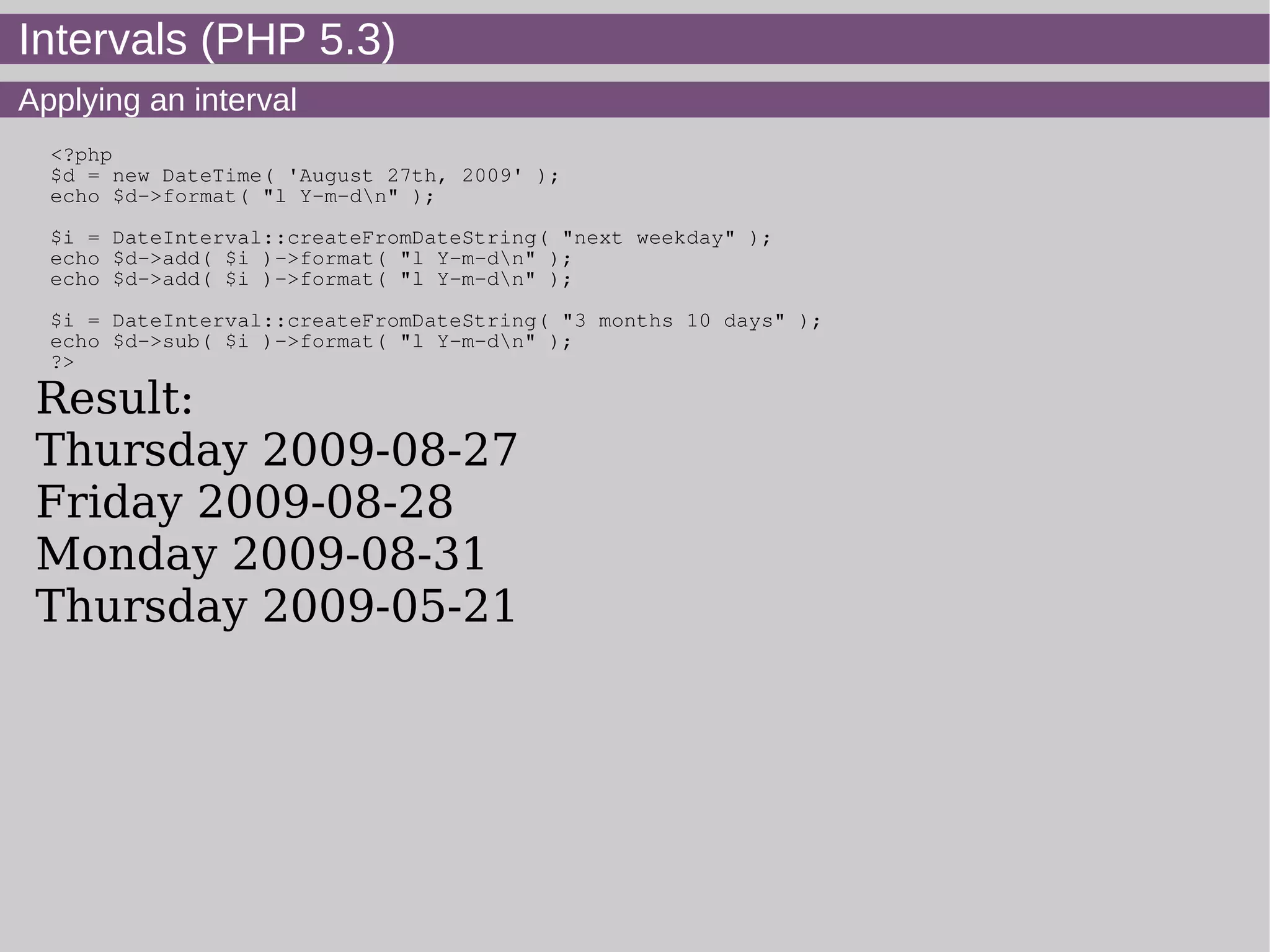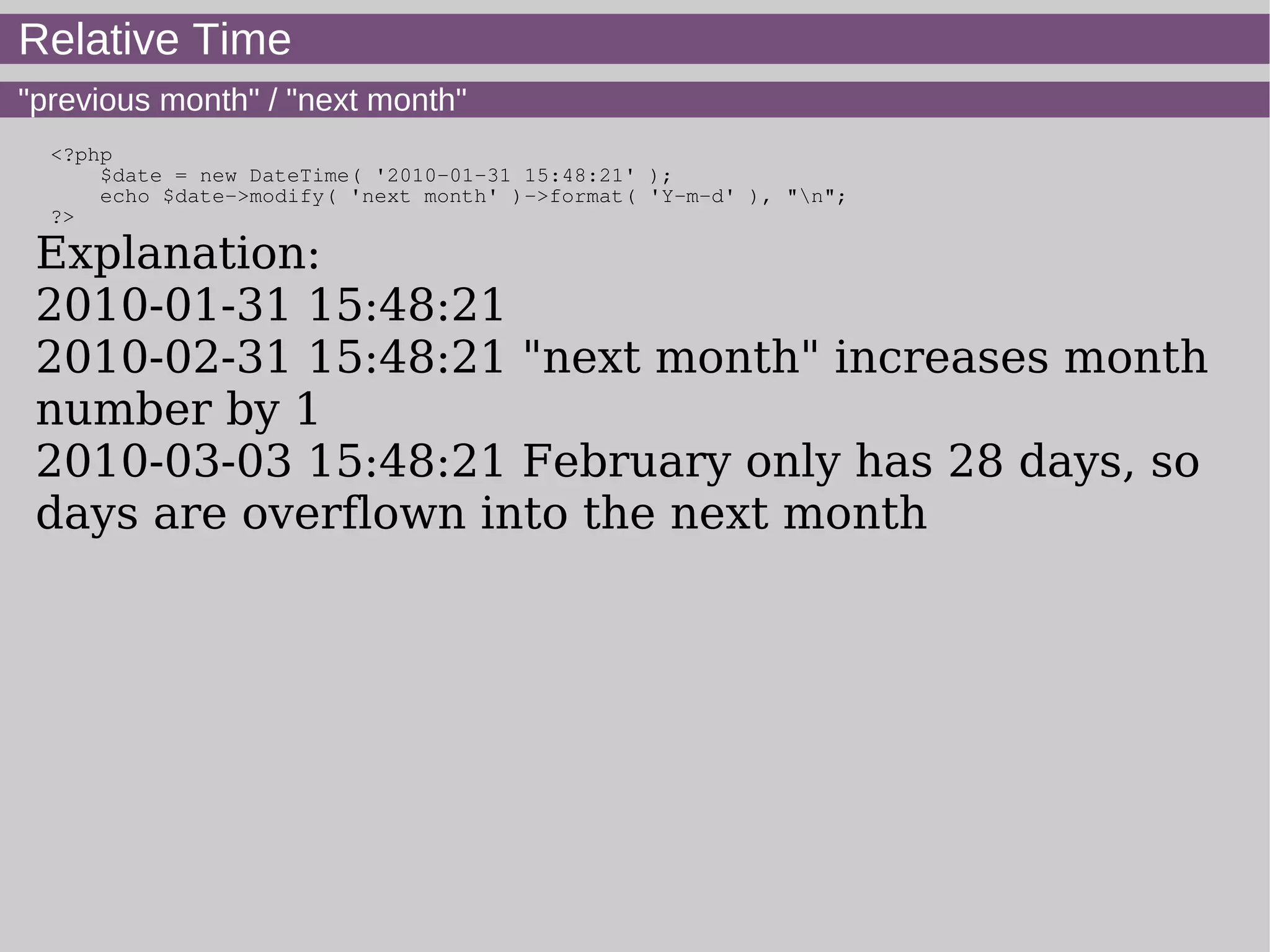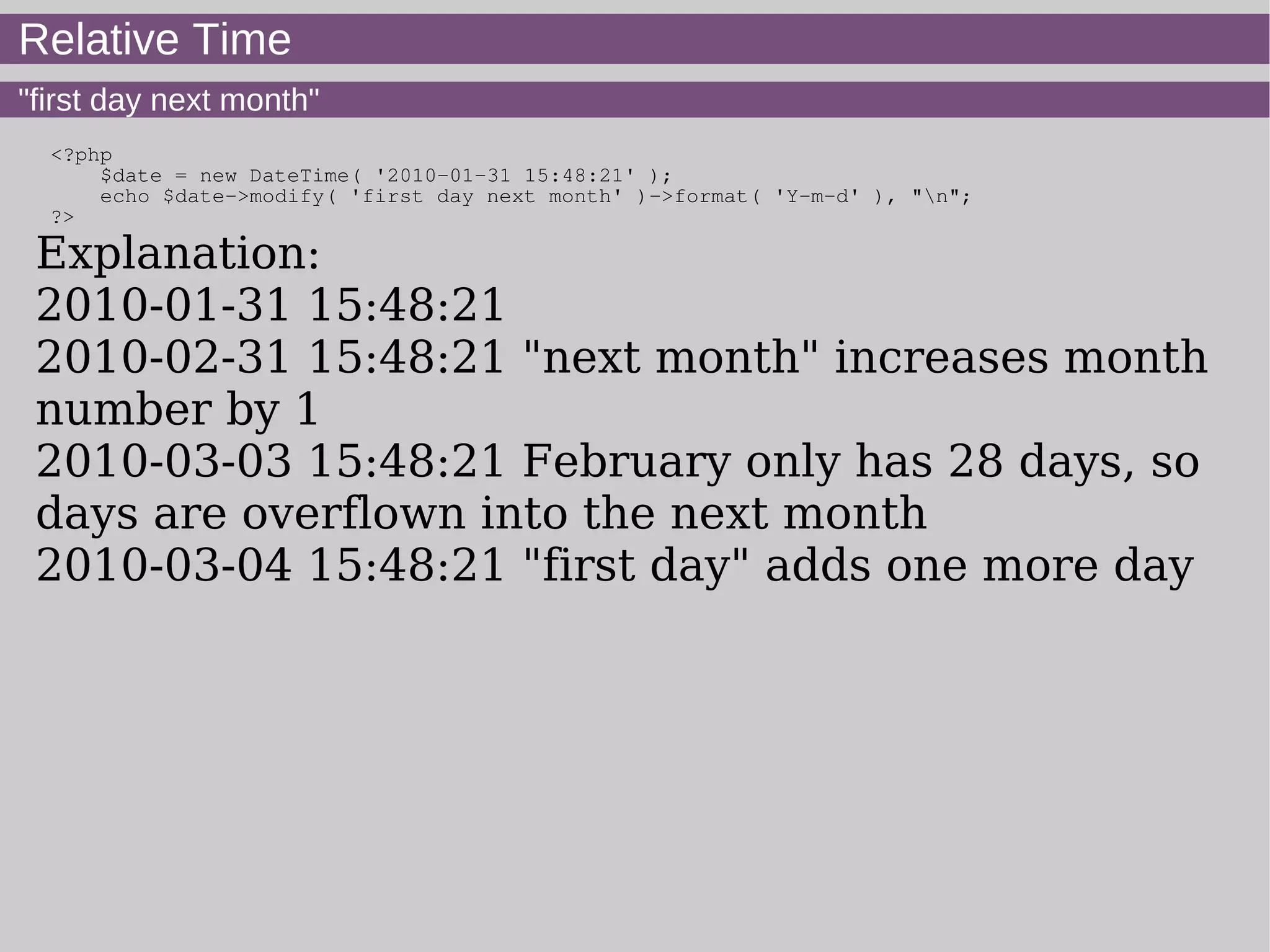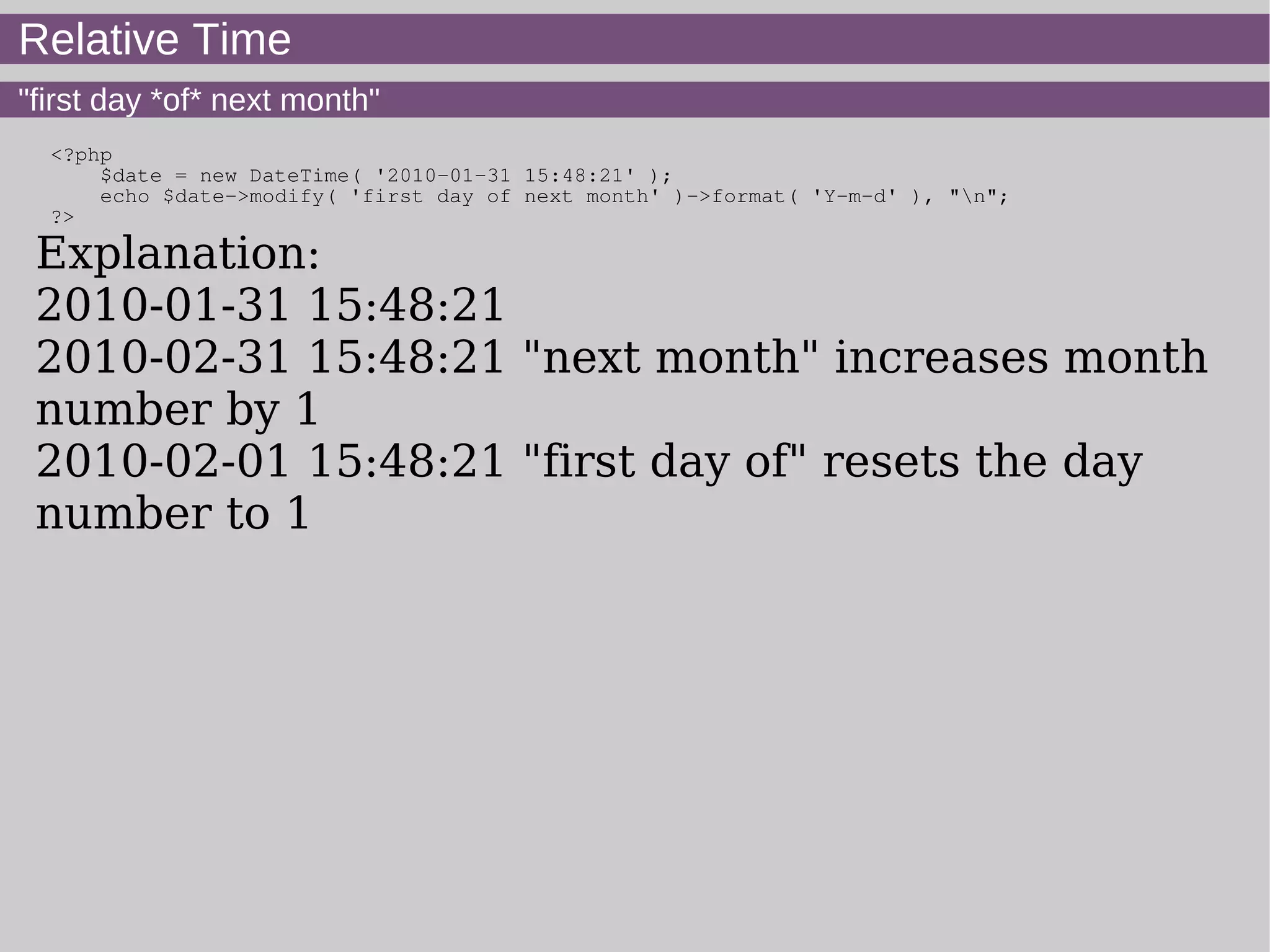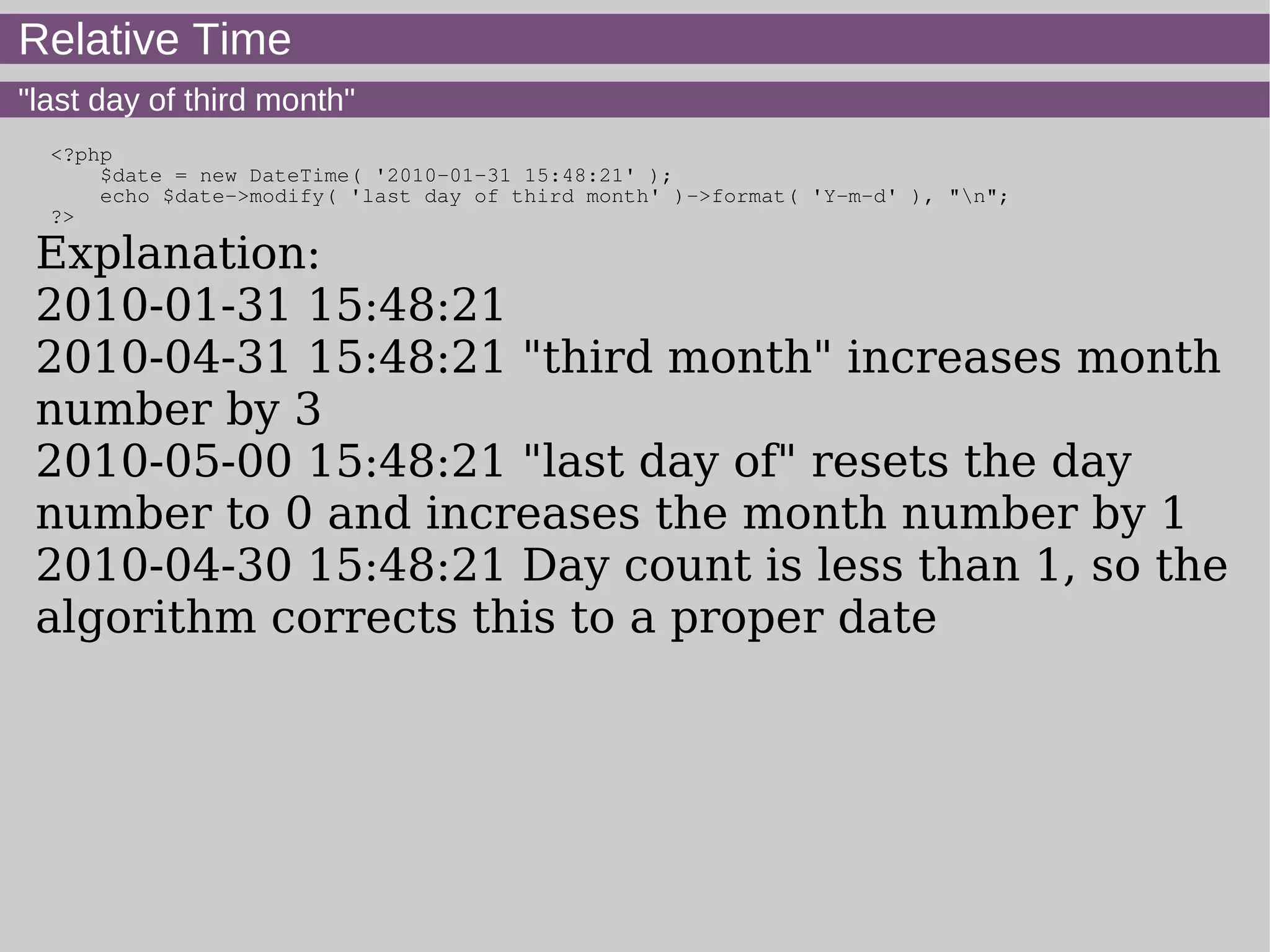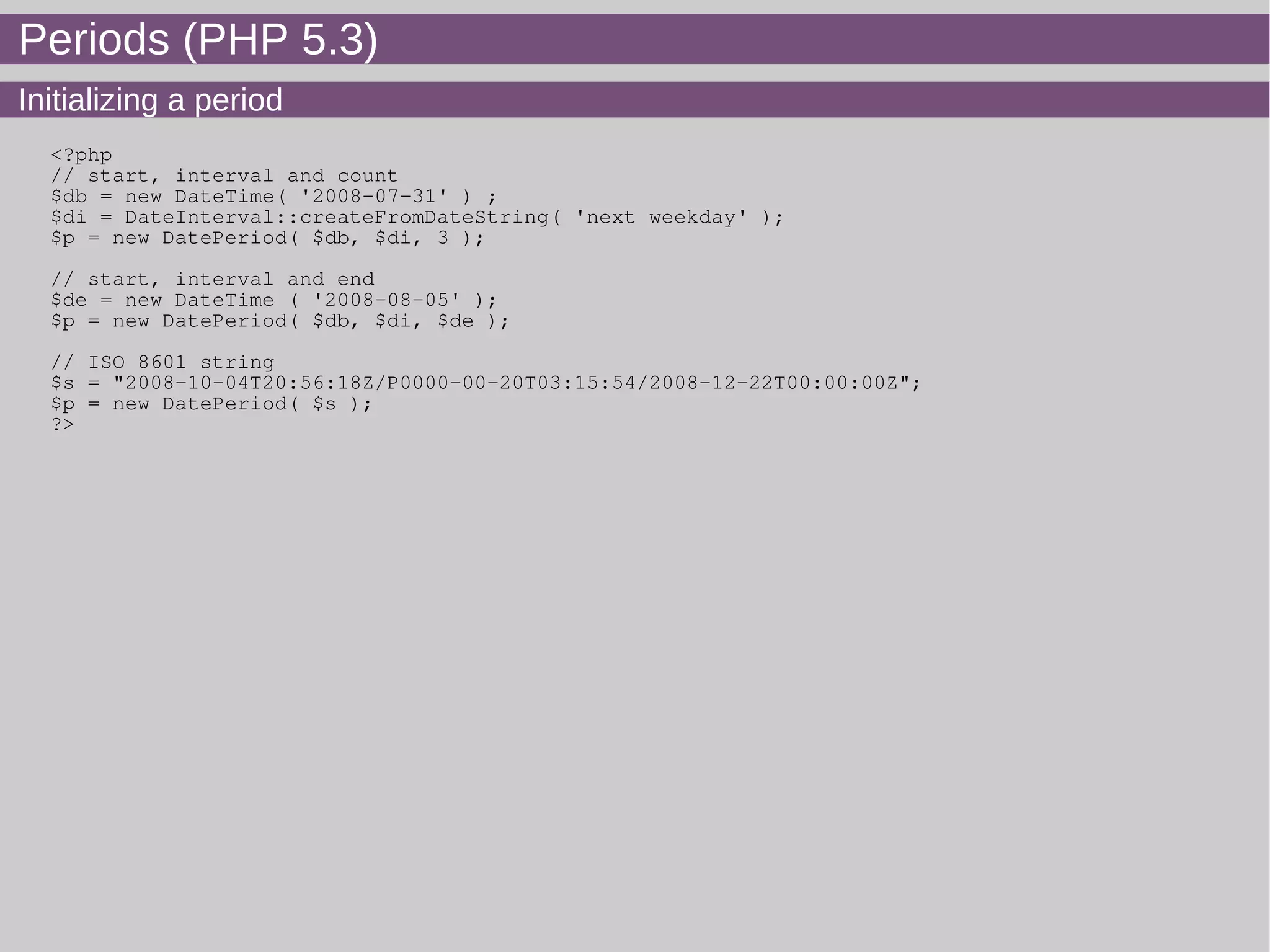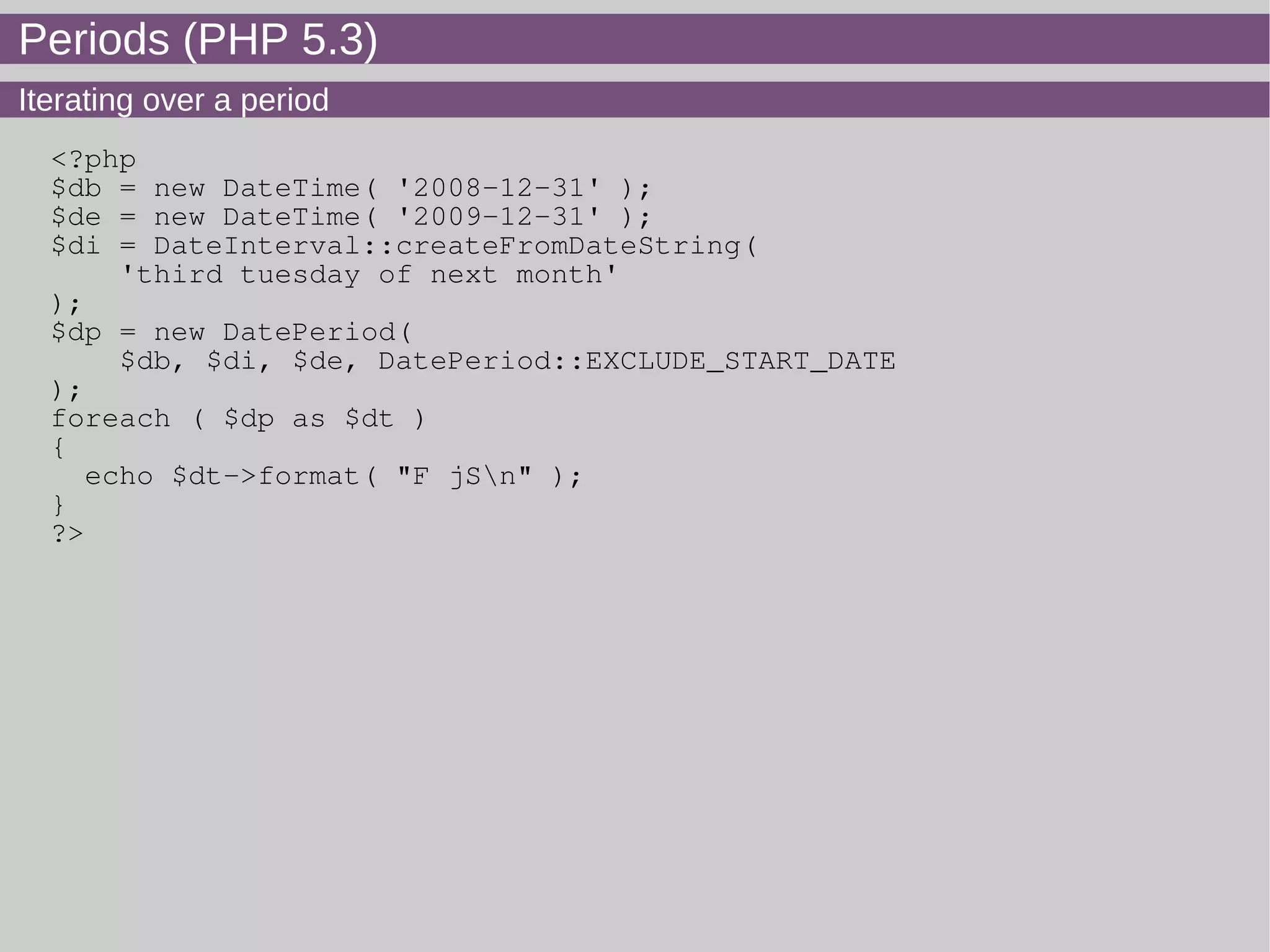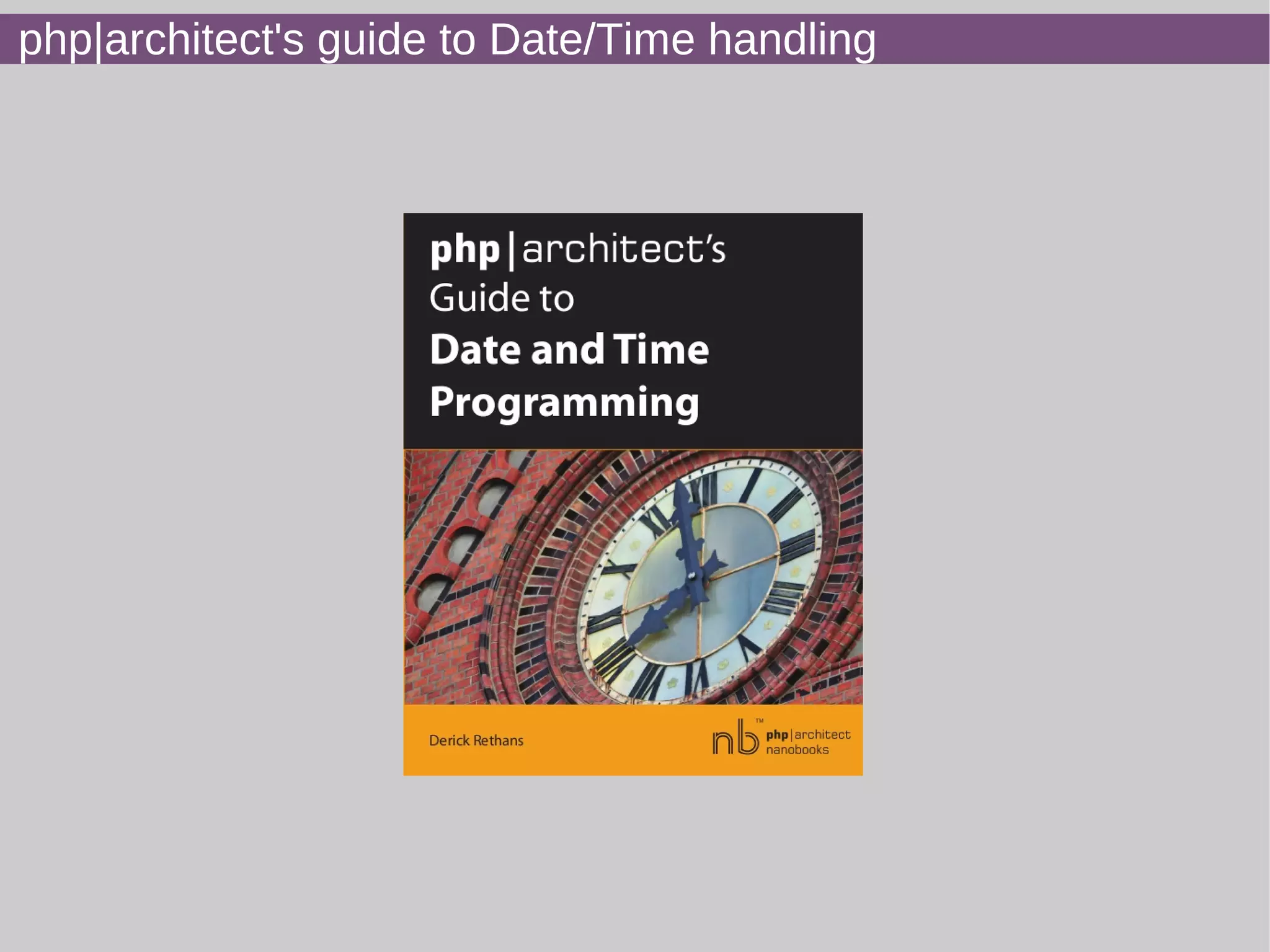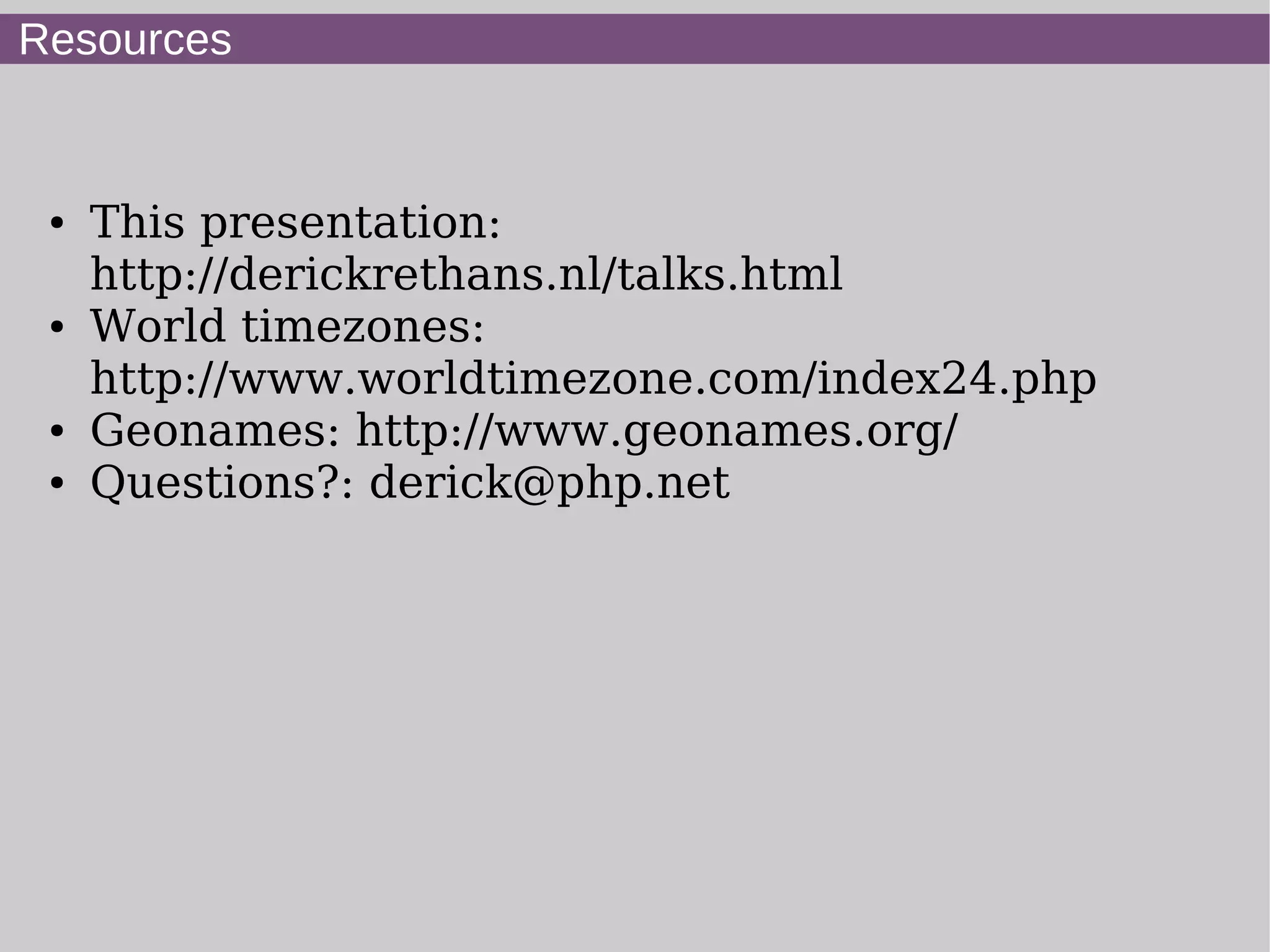This document provides an overview of advanced date and time handling in PHP, including:
- Setting default timezones and parsing date strings
- Modifying dates and times using objects and intervals
- Working with timezones and the timezone database
- Iterating over periods defined by start date, interval, and end date
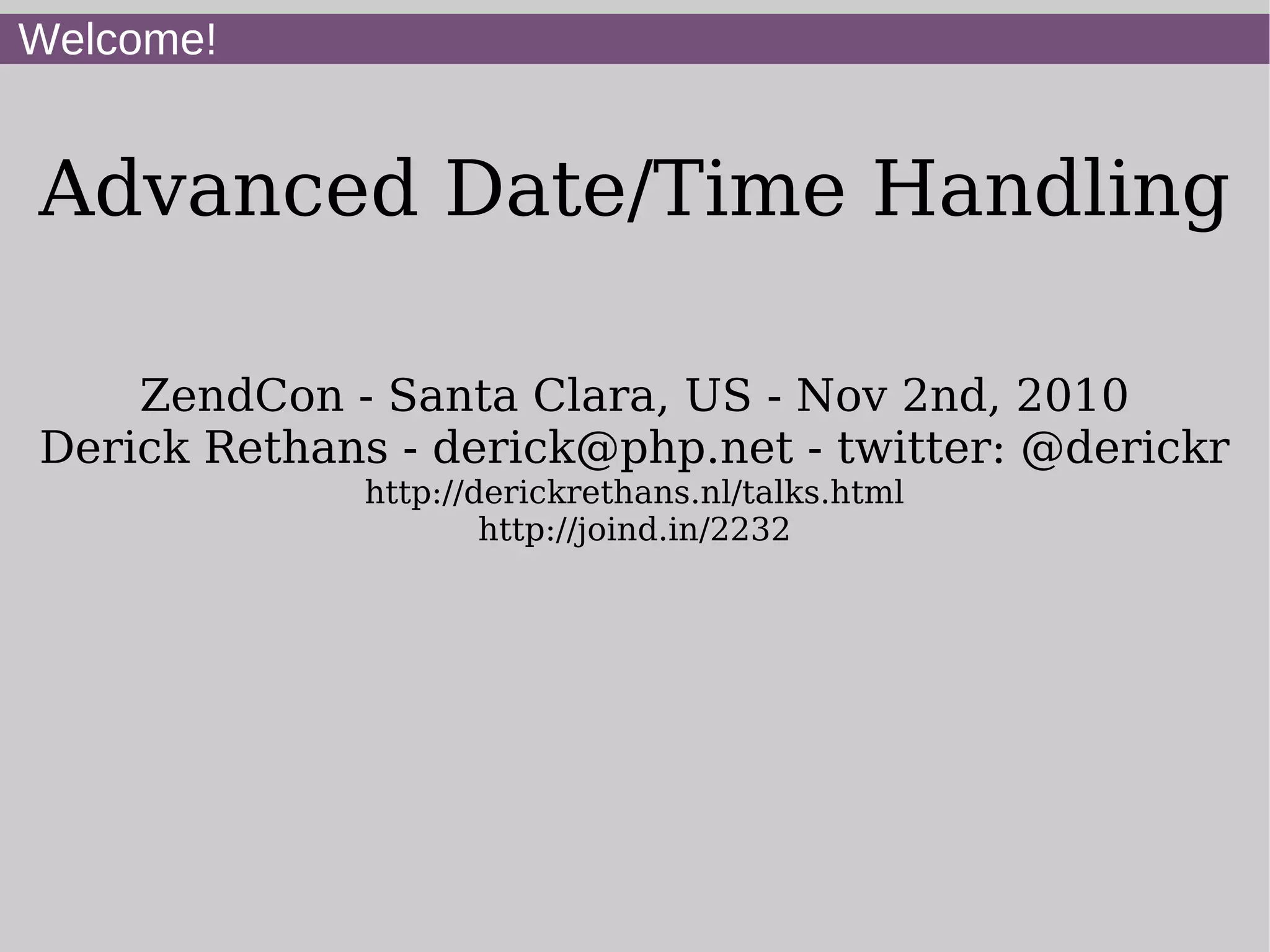

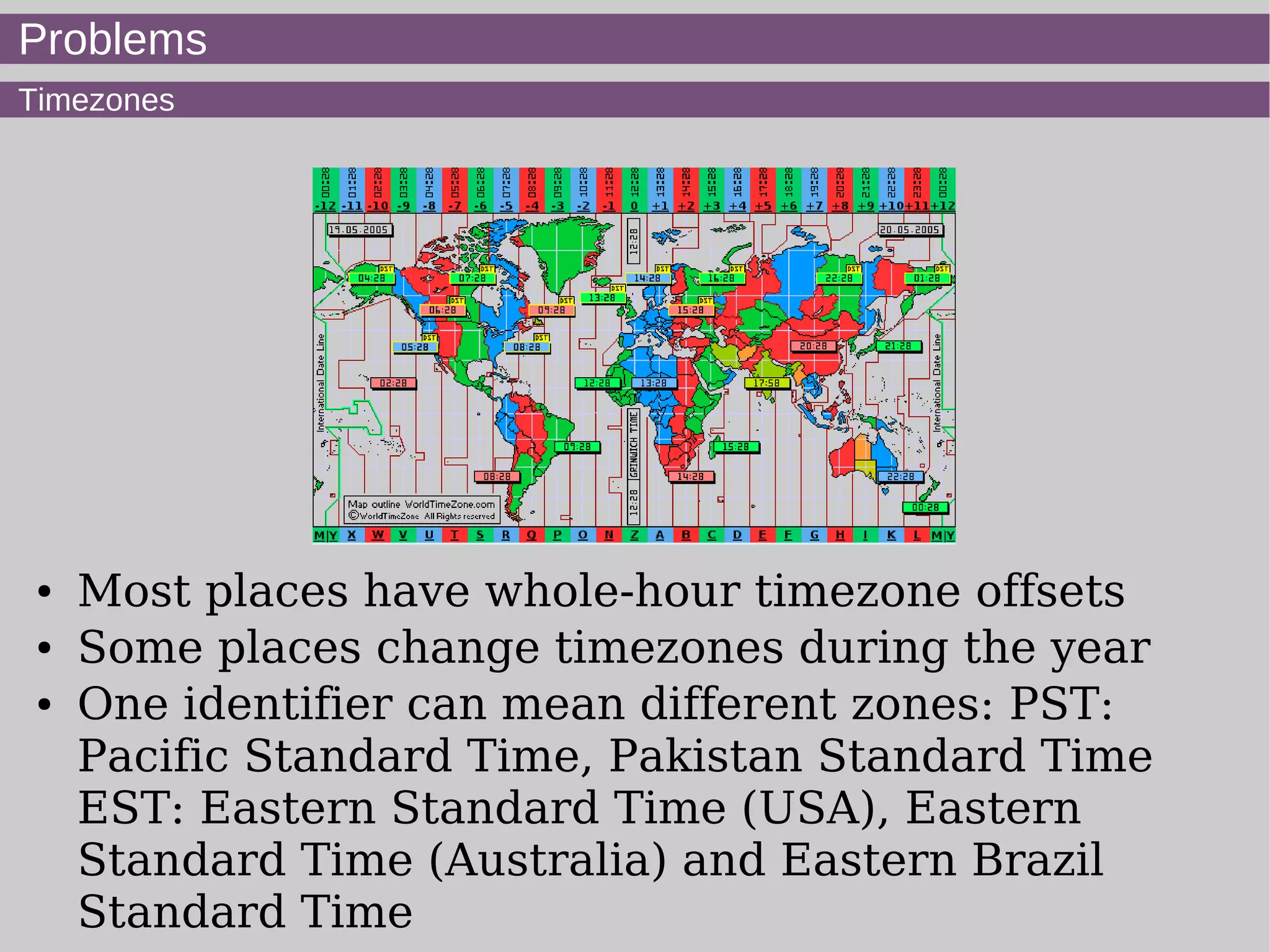
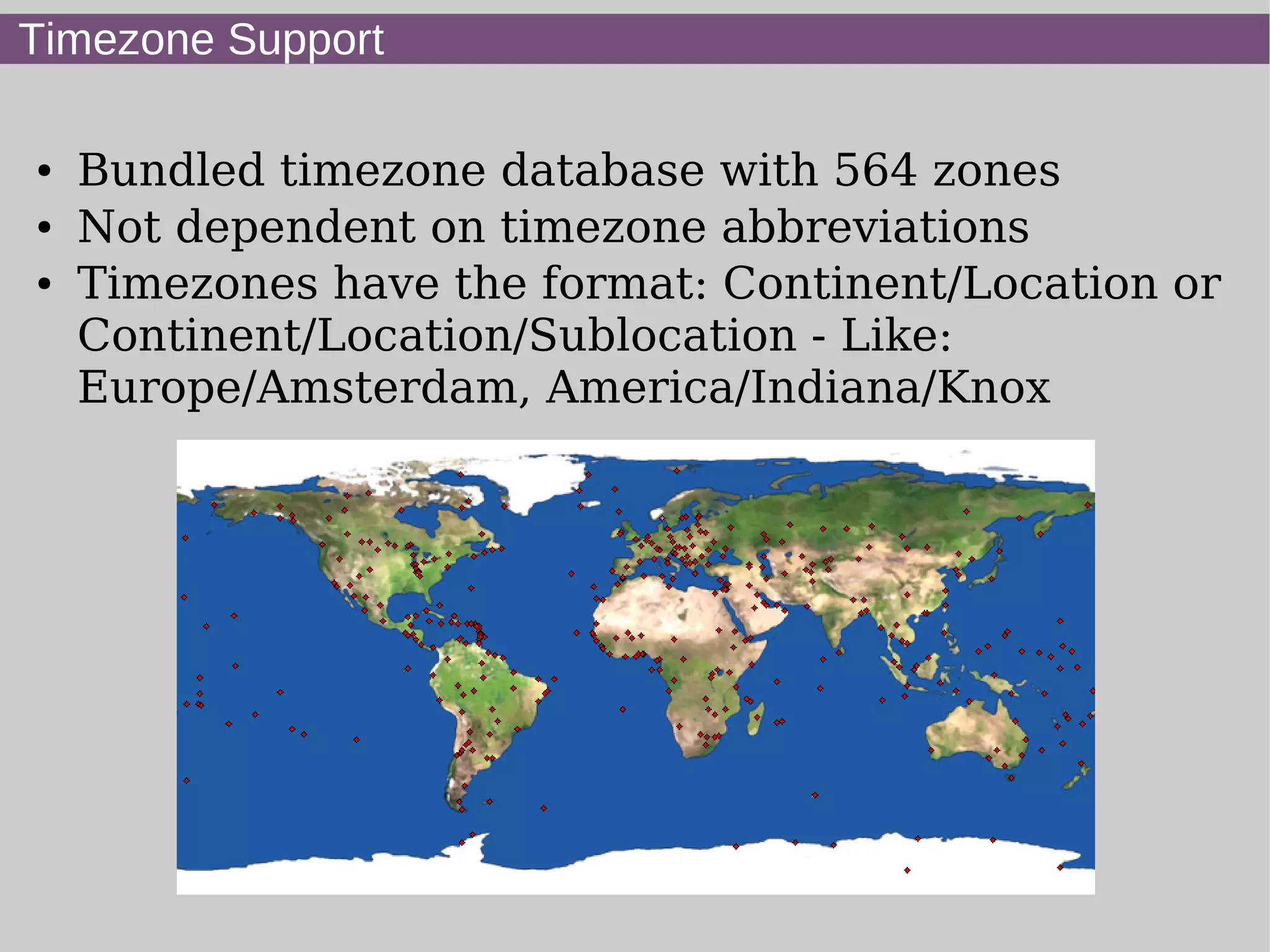
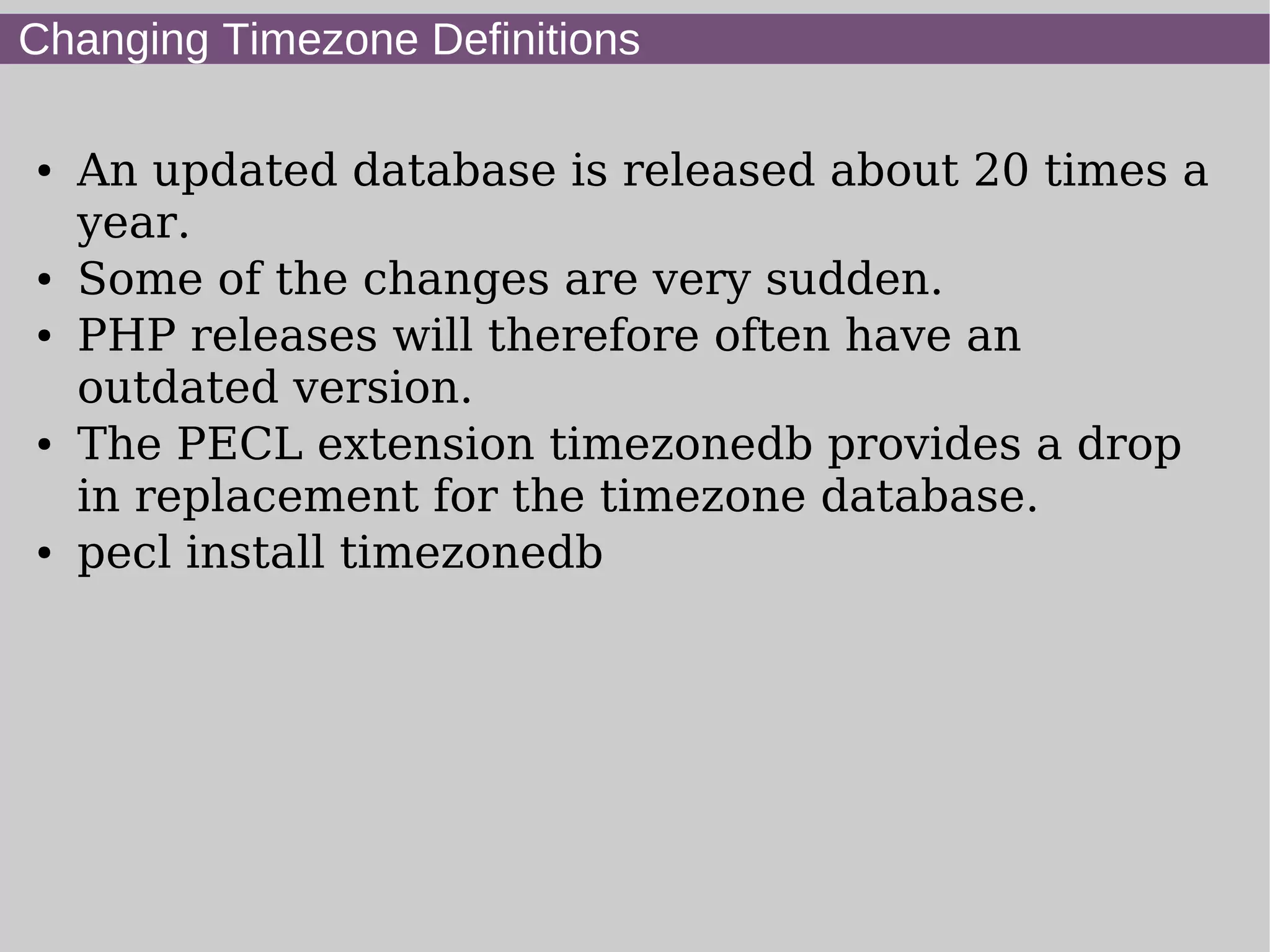
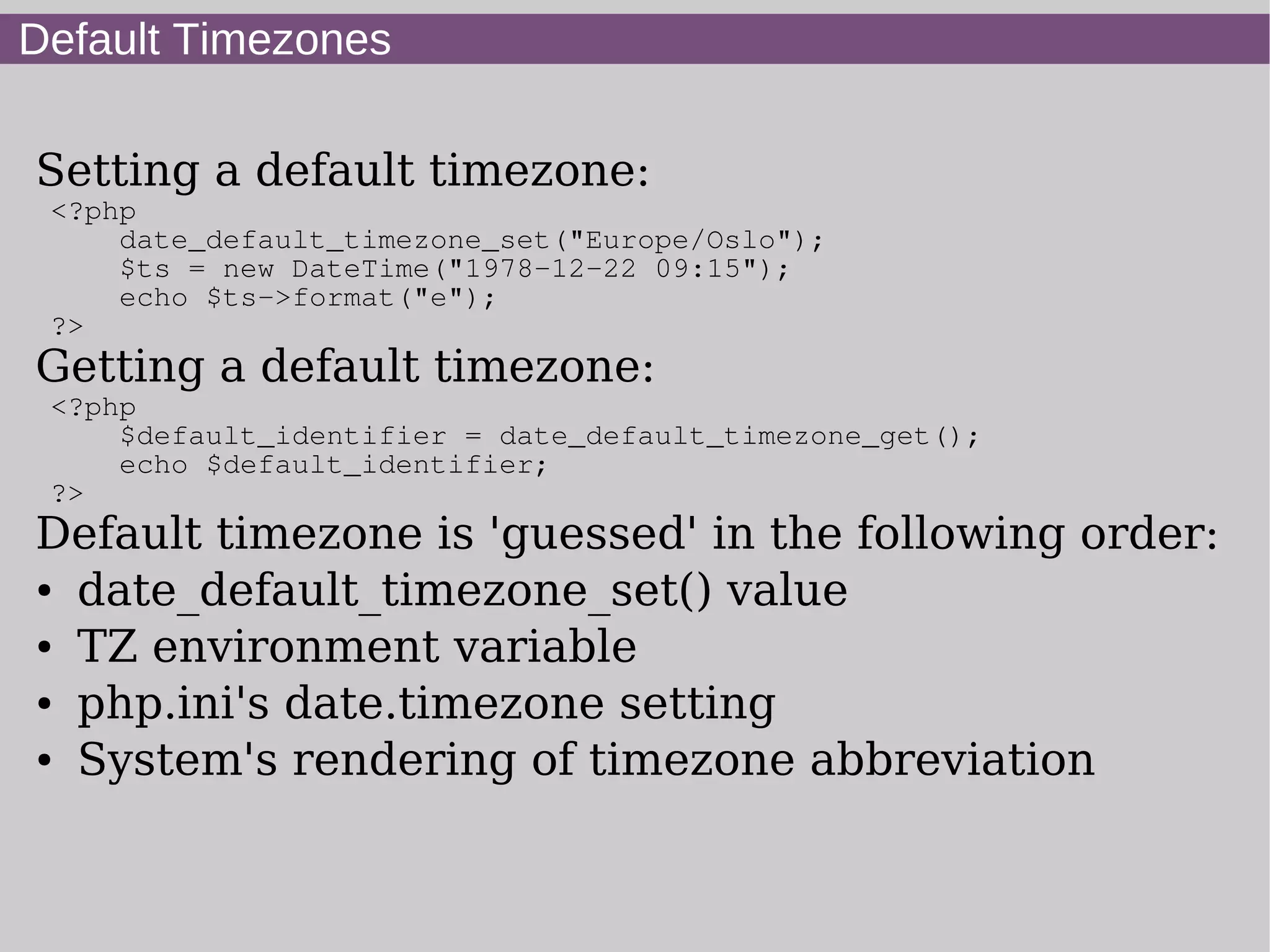
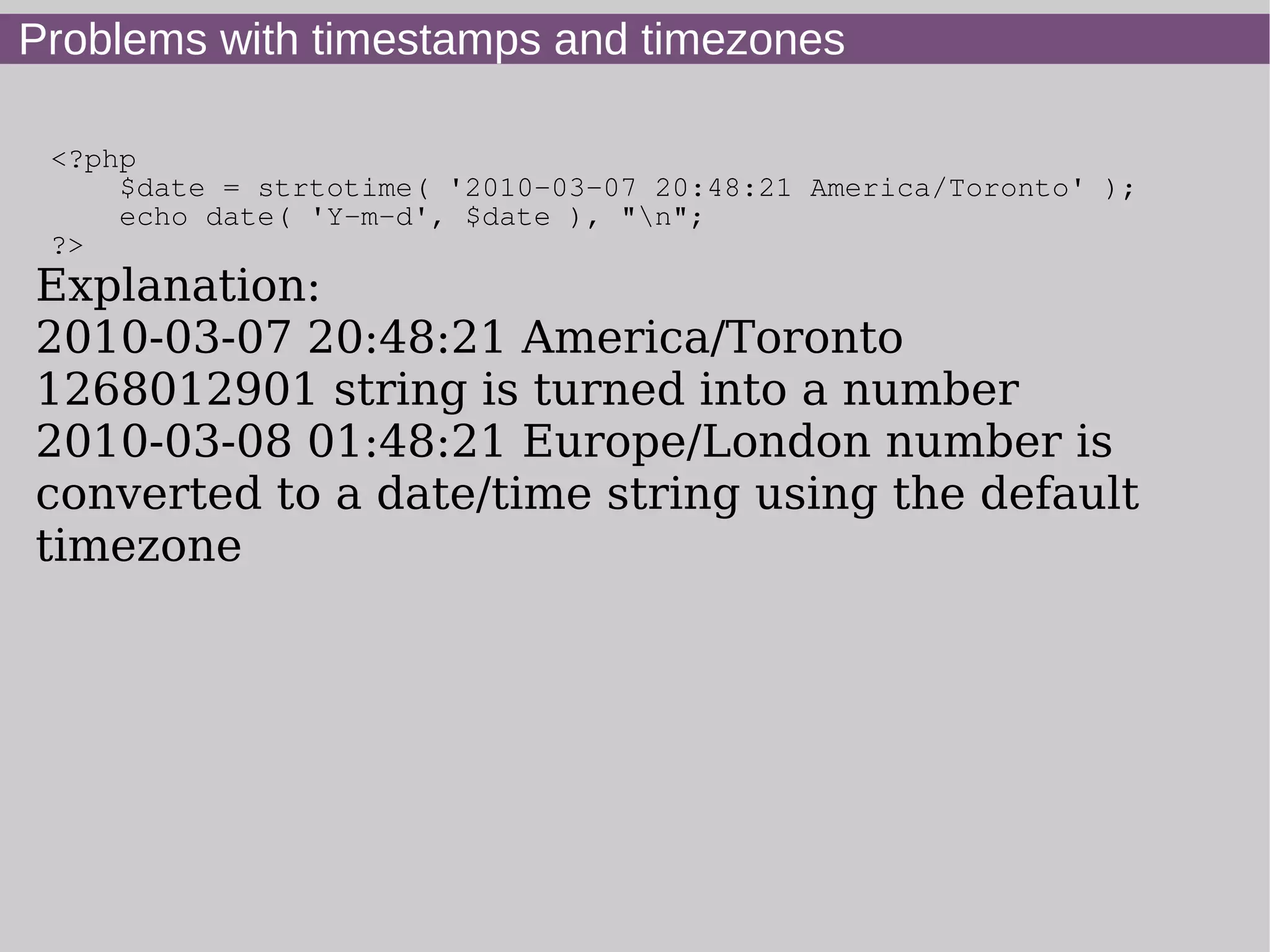
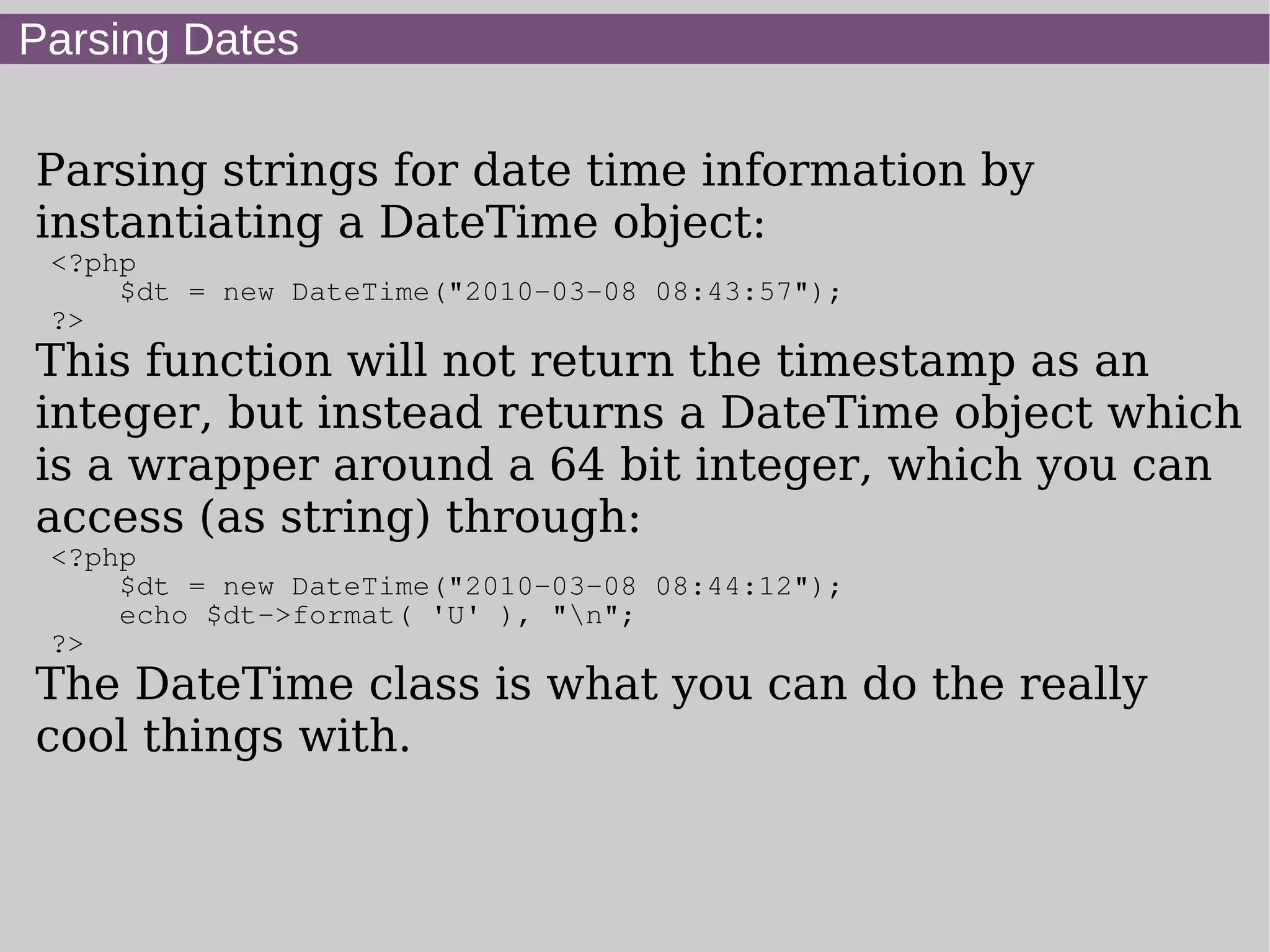
![Parsing Dates
"22apr2006 8:36:14 #^ Europe/Oslo CEST"
"22apr2006 8:36:14 #^ Europe/Oslo CEST"
"22apr2006 8:36:14 Europe/Oslo CEST"
"22apr2006 8:36:14 Europe/Oslo CEST"
Parsing strings with the date_parse() function:
<?php
$date = "22apr2006 8:36:14.43 #^ Europe/Oslo CEST";
$t = date_parse( $date );
echo $t['year'], '-', $t['month'], '-', $t['day'], " ";
echo $t['hour'], ':', $t['minute'], ':', $t['second'] + $t['fraction'], " ";
echo $t['tz_id'], "n";
if ( $t['warning_count'] )
echo "Warnings:n";
foreach( $t['warnings'] as $pos => $message )
echo "- $message @$posn";
if ( $t['error_count'] )
echo "Errors:n";
foreach( $t['errors'] as $pos => $message )
echo "- $message @$posn";](https://image.slidesharecdn.com/time-zendcon10-101103064351-phpapp01/75/Advanced-Date-Time-Handling-with-PHP-9-2048.jpg)
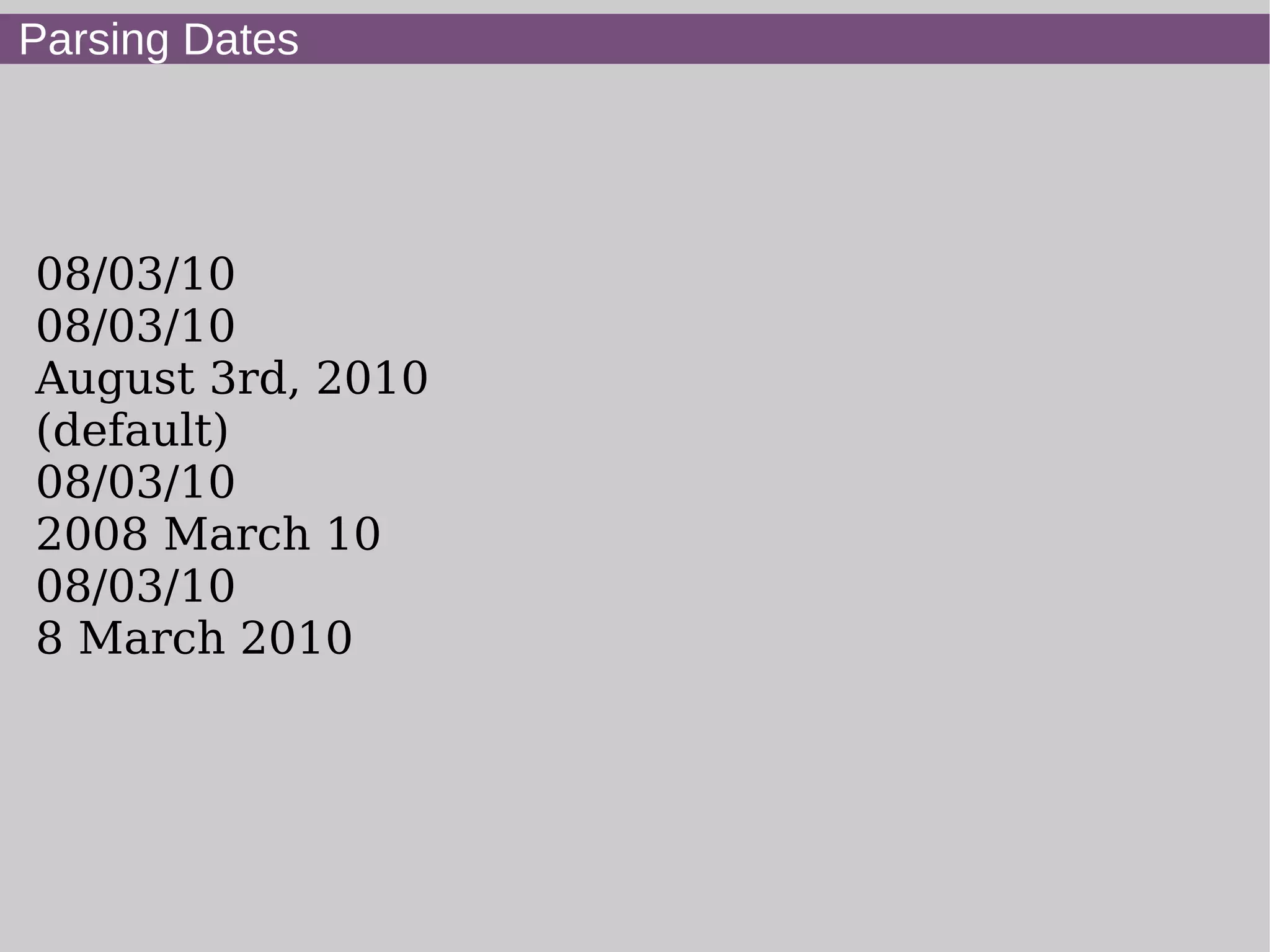
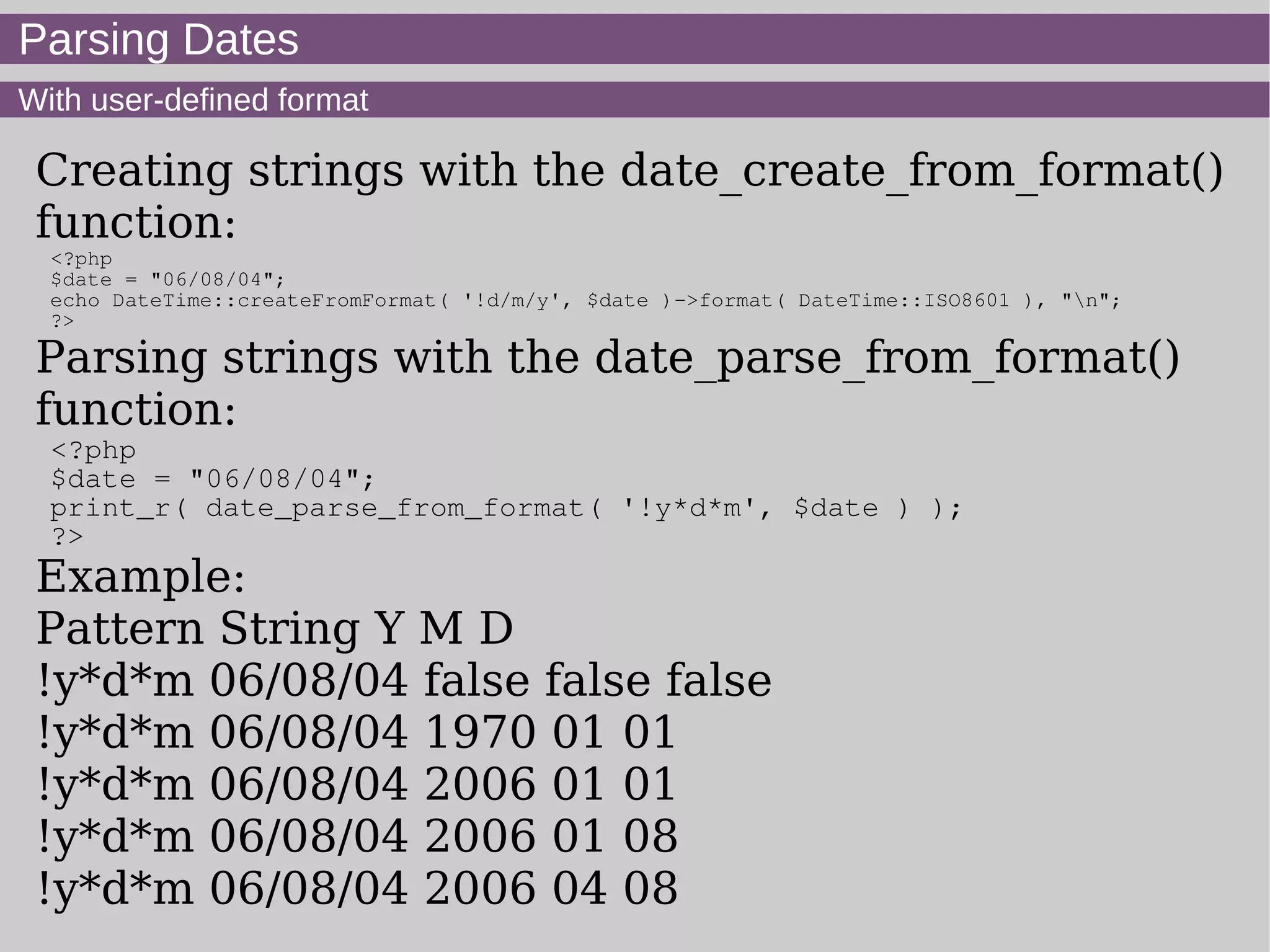
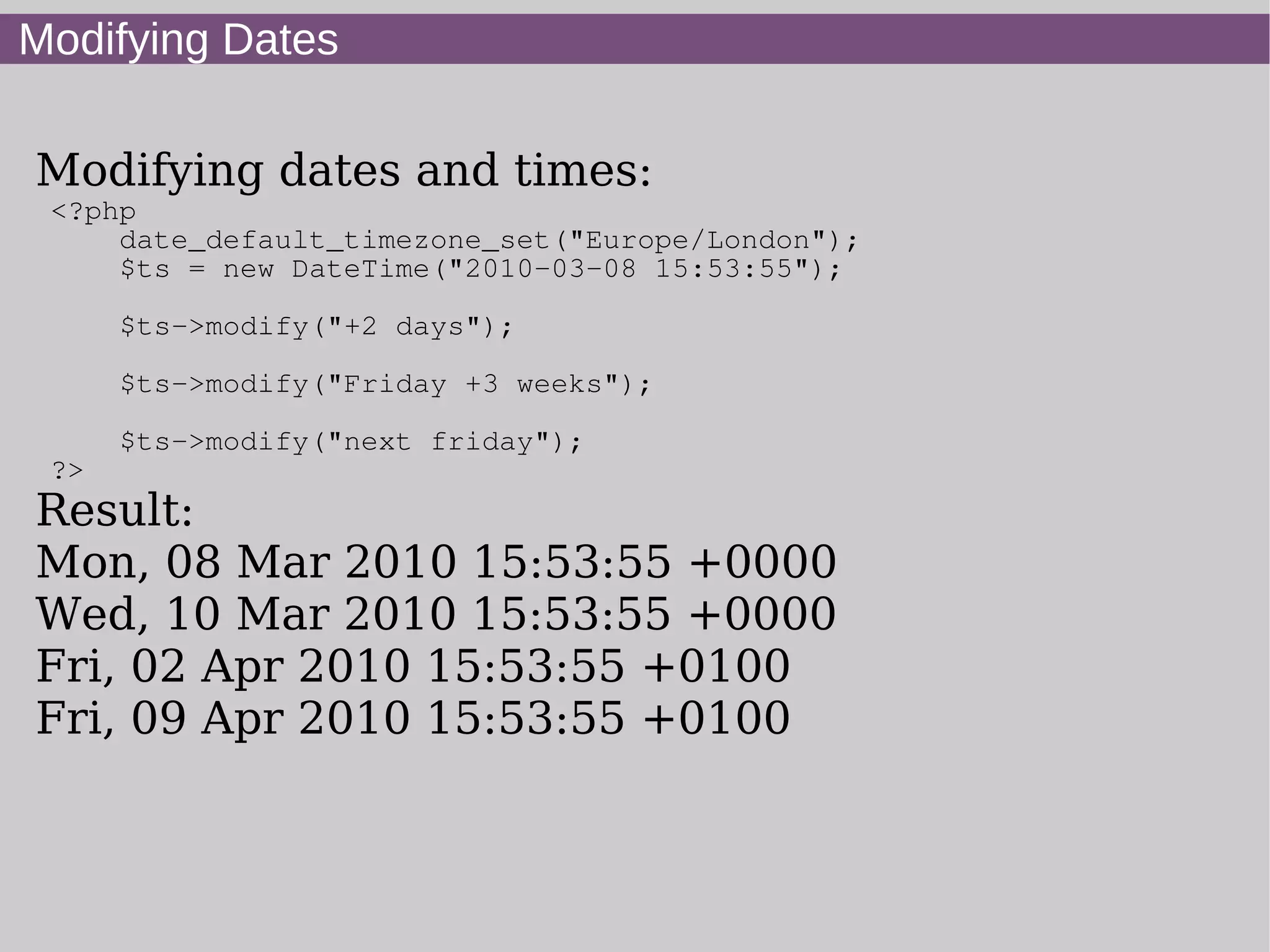
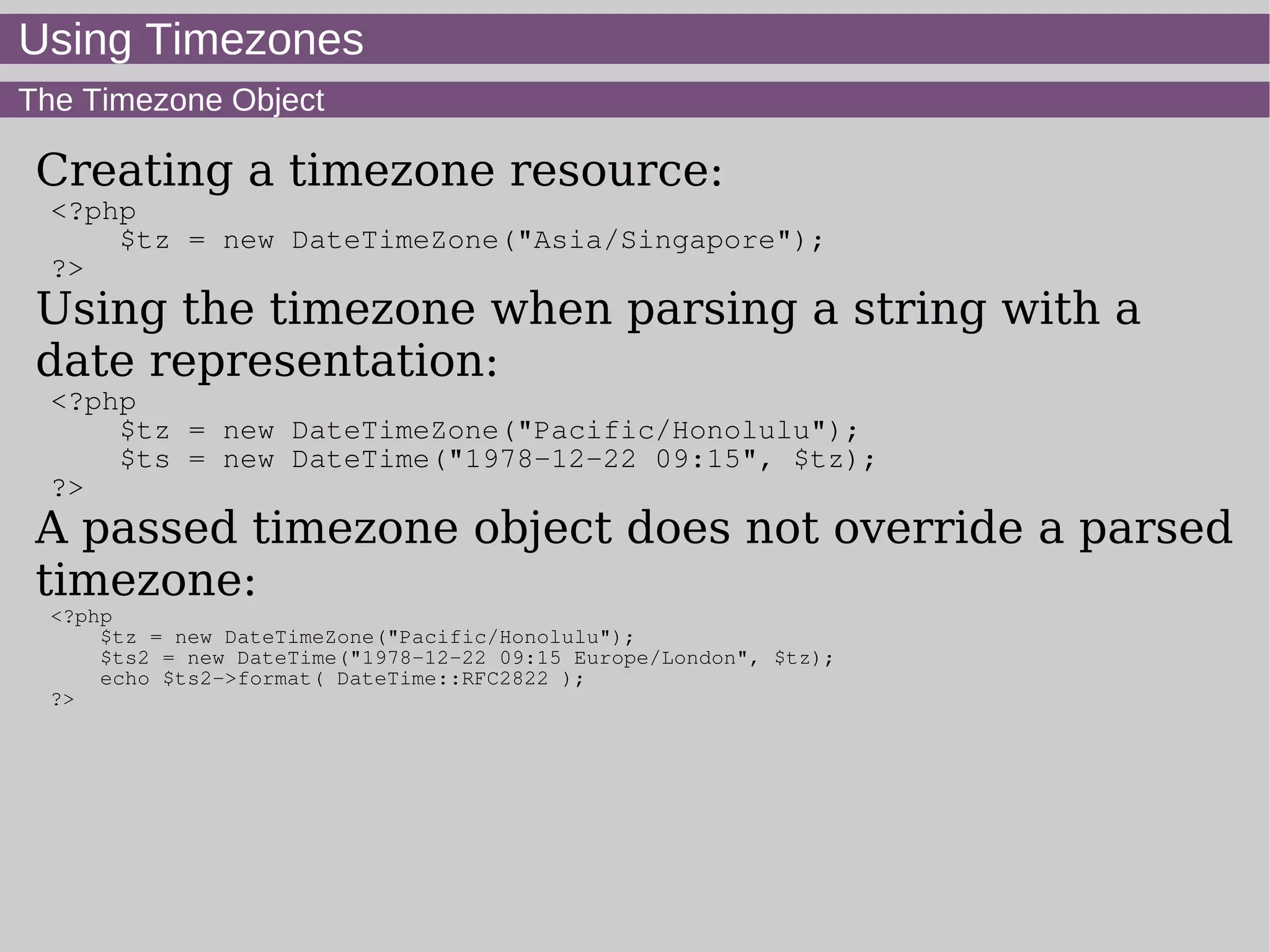
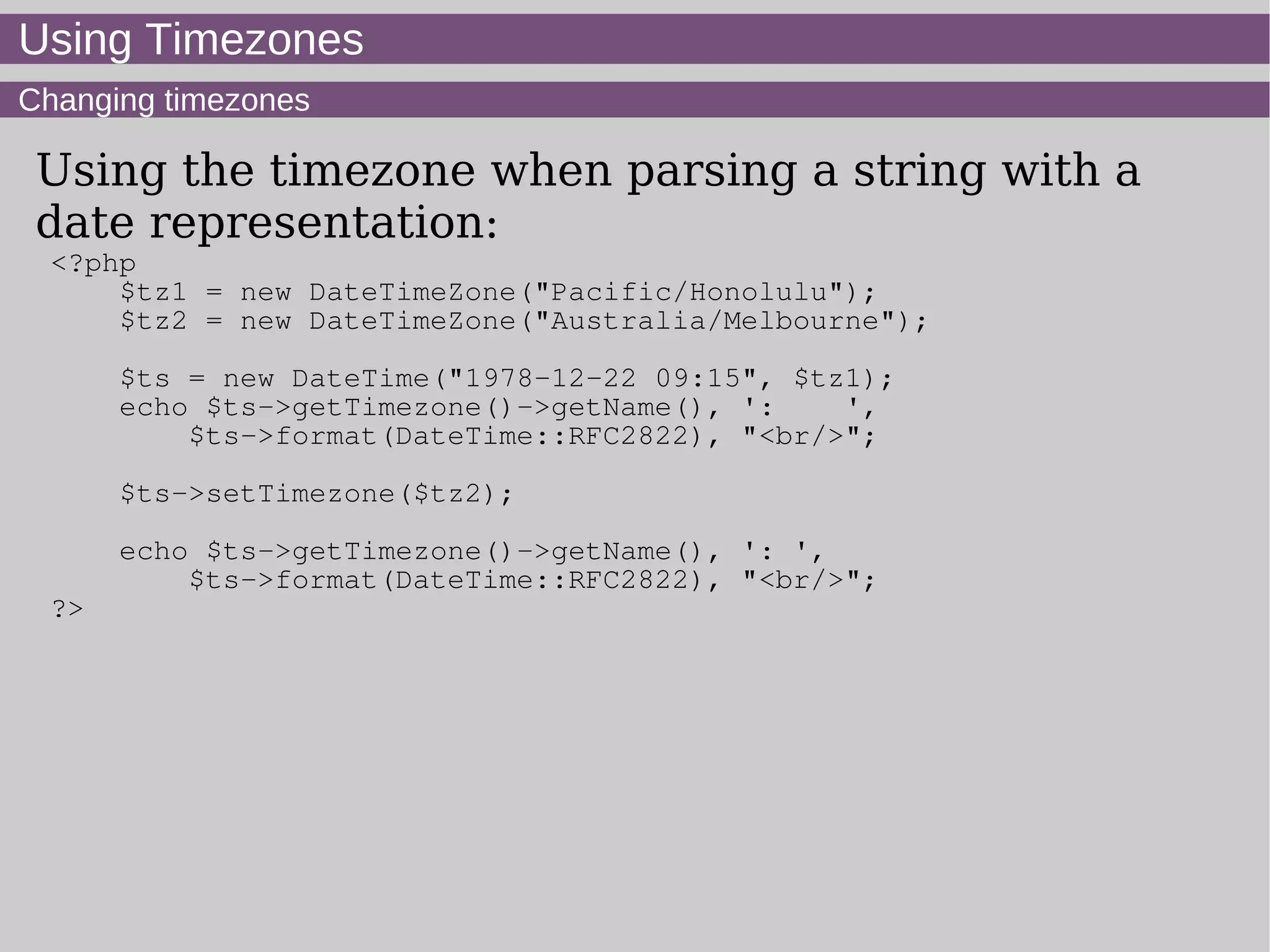
![Timezones Utilities
Transition Times and Location Information
<?php
$tz = new DateTimeZone("Europe/Berlin");
$trs = $tz->getTransitions(
strtotime('1938-01-01 UTC'), strtotime('1948-01-01 UTC')
);
foreach ($trs as $tr) {
printf("%20s %7d %d %sn",
$tr['time'], $tr['offset'], $tr['isdst'], $tr['abbr']);
}
$loc = $tz->getLocation();
echo 'Info: ', join( ' - ', $loc ), "n";](https://image.slidesharecdn.com/time-zendcon10-101103064351-phpapp01/75/Advanced-Date-Time-Handling-with-PHP-15-2048.jpg)
